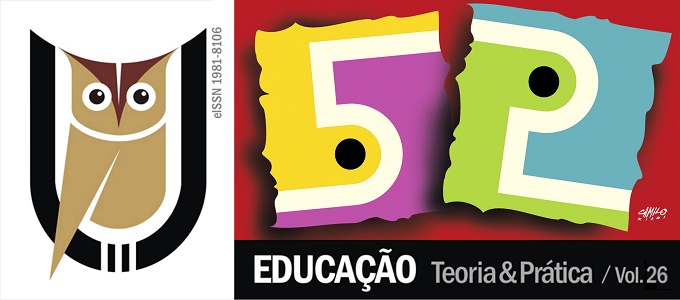Representações de si e sentimento moral: uma pesquisa sobre fracasso escolar
DOI:
https://doi.org/10.18675/1981-8106.vol26.n52.p365-381Keywords:
Psicologia Moral. Representações de si. Vergonha. Fracasso escolar.Abstract
Neste trabalho, discutem-se as representações de si e o sentimento de vergonha frente às situações de fracasso escolar vivenciadas por adolescentes que frequentam o nono ano do ensino fundamental. A pesquisa foi realizada por meio de entrevista clínica com 49 adolescentes, meninos e meninas, em seis escolas públicas do município de Rolim de Moura, Rondônia, com objetivo de compreender aspectos relevantes das representações que fazem de si diante do fracasso escolar, tendo como marco teórico os estudos de Piaget sobre o desenvolvimento moral infantil, as pesquisas contemporâneas na perspectiva da Psicologia Moral. Os resultados apontam para o fato de que os sujeitos sentem-se culpados pelo fracasso, mas, em alguns casos, não sentem vergonha; em outros, apesar de a sentirem, a vergonha não implica em representação negativa de si. Por fim, constatamos que os dados de nossa pesquisa endossam as ideias de que a busca de representações positivas de si é uma das motivações básicas da conduta humana.Downloads
Additional Files
Published
How to Cite
Issue
Section
License
Authors who publish in this journal agree to the following terms:
a) Authors assign copyright to the journal, with the work simultaneously licensed under the Creative Commons Attribution License that allows sharing of the work with acknowledgment of authorship and publication in this journal.
b) The policy adopted by the Editorial Committee is to assign copyright only after a period of 30 months from the date of publication of the article. After this time, authors interested in publishing the same text in another work must send a letter to the Editorial Committee requesting the release of the assignment of copyright and wait for a response.
c) This journal provides public access to all its content, since this allows greater visibility and reach of published articles and reviews. For more information on this approach, visit the Public Knowledge Project, a project that developed this system to improve the academic and public quality of research, by distributing OJS as well as other software to support the public access publication system to academic sources. The names and email addresses on this website will be used exclusively for the purposes of the journal and will not be available for other purposes. This journal provides open any other party  This work is licensed under a Creative Commons License
This work is licensed under a Creative Commons License











